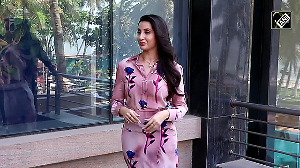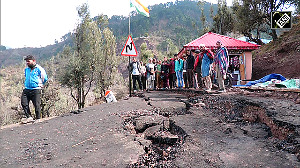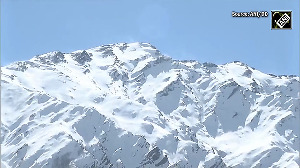The death toll in the four-day-long Kashmir violence rose to 22 with the death of a youth in Central Reserve Police Force firing as protests rocked Srinagar on Thursday.
At Safakadal in the old city of Srinagar, CRPF troops opened fire at a stone-pelting mob on Thursday morning injuring four persons.
All the injured were removed to SMHS hospital for treatment.
One of the critically injured youths identified as Tanveer Ahmad later succumbed to injuries in the hospital.
The death toll in past four days has now gone upto 22.
Authorities in Srinagar said more than 400 persons, including 100 police and paramilitary personnel have been injured in the Valley-wide protest demonstrations so far.
The slogan shouting mobs that thronged various mosques and streets till the wee hours of Thursday were brought out by reported use of excessive use of force by the CRPF in some localities of Srinagar.
As the reports spread like wildfire, announcements were made from loudspeakers of mosques asking people to come out of their homes to register their protests against the paramilitary highhandedness.
The Jammu and Kashmir Liberation Front chairman Yasin Malik sat on a dharna in the city centre Lal Chowk along with his supporters to protest against the recent killings including that of People's League chairman Sheikh Abdul Aziz and the alleged security force excesses.
"We strongly condemn the atrocities committed by the security forces. They cannot suppress our struggle," said Malik.
"We have to rise beyond communal, regional and the ideological divides and strive to recreate a peaceful environment across the state," Governor N N Vohra said in a message in Srinagar.
He urged the people to totally shun the path of violence and maintain peace and calm in this difficult hour, in keeping with the glorious traditions of secularism, brotherhood and communal harmony.
He reiterated his commitment to continue the dialogue process involving the representatives of various agitating groups for evolving an amicable solution.
"It should be our collective responsibility to resolve the most contentious issues through the democratic process, based on dialogue and conciliation," he maintained.






 © 2025
© 2025